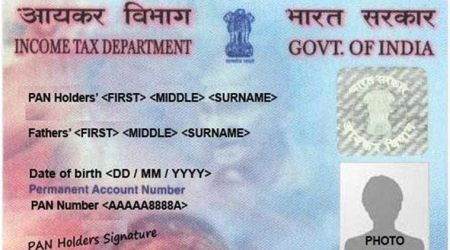 History of Mughals and Western countries is irrelevant for Class VII and IX students of schools under the Maharashtra State Board of Secondary & Higher Secondary Education (Representational Image/ Thinkstock Images)
History of Mughals and Western countries is irrelevant for Class VII and IX students of schools under the Maharashtra State Board of Secondary & Higher Secondary Education (Representational Image/ Thinkstock Images)
History of Mughals and Western countries is irrelevant for Class VII and IX students of schools under the Maharashtra State Board of Secondary & Higher Secondary Education, claims the state education department and members of the History Subject Committee. The revised textbooks for these classes revolve around the Maratha empire and warrior king Shivaji, besides Indian politics post 1960.
Members of the committee say the changes are not a “political decision” but an elaborate process involving subject experts and teachers. “The point of reference for Class VII is the Maratha empire, Maharashtra and India before and after Chhatrapati Shivaji. In Class IX, the point of reference is events impacting Indian political scenario,” said Sadanand More, head of the committee.
Earlier, the history textbooks comprised chapters on Mughal emperors and their contribution besides detailed history of events that impacted Western countries, such as the French Revolution, Greek philosophy, American War of Independence etc. All of this have now either been discarded or reduced to a few lines.
More added, “The idea was to revise the syllabus to make it more Maharashtra-centric, to make it more relevant for students of the state board. We are from Maharashtra, we need to learn more about the history of this region. I don’t think there is anything wrong in that. Why is nobody pointing out the fact the Central board schools and those following ICSE curriculum have hardly a page on our state and just a few paragraphs on Shivaji. Students interested in opting for higher studies can learn about those topics later. It is not relevant right now.”
The revised textbook has Shivaji as the focal point of medieval Indian history. His role, and those of his family and the Maratha generals have been expanded. The revised textbook has elaborated chapters on the 27-year-old struggle of the Marathas against Aurangzeb. While the old textbook titled the chapter on Shivaji as ‘People’s King’, the revised textbook has renamed it ‘An Ideal Ruler’. While the old textbook had just a mention of the Sant movement and the Warkaris, an elaborate sub-topic on the same has been added to the revised textbook.
The Class IX textbook now has events impacting Indian politics from 1960s and 2000. “They have made it more contemporary. It’s more to do with the Indian political scenario. Internal challenges, economical situations, women empowerment in India post 1960s have been mentioned omitting events that impacted the West. It is relevant for students of Class IX. However, I would want to see what changes they make to the Class X textbooks,” said Raju Lagate, a history teacher from a school in the western suburbs.
Another teacher, Geeta Mishra from Thakur Vidya Mandir School and Junior College, said, “Mughal history was important, much of it has now been either omitted or shrinked into a few lines. Topics that were covered in two to three chapters have been merged into one, making it more lengthy. They have covered everything pertaining to Maharashtra. Reducing details on Mughal emperors, they have introduced topics dealing with Indian kings and queens not covered in the old textbooks.”
Last year, Education Minister Vinod Tawde had convened a meeting at Rambhau Mhalgi Prabodhini, a think-tank promoted and run by the Rashtriya Swayamsevak Sangh, where a syllabus revision was first discussed.
The process to revise Class X textbook has been initiated. The book currently comprises world history. An official on special duty at the school education department said, “We have taken feedback from subject experts and teachers before revising the textbooks. Teachers have already started teaching from the revised book. None of the stakeholders have objected to it yet. We don’t see any problem in the revised textbook.”
The revised Class IX textbook had run into controversy last month, with a few researchers and Congress leaders objecting to a chapter mentioning about the Bofors deal. Chapter 2 of the revised Class IX history textbook, titled ‘India: Events after 1960’, says the Allahabad High Court had said Indira Gandhi misused the government machinery for her election campaign, leading to nationwide strikes following which Emergency was declared.
The textbook says Rajiv Gandhi faced criticism for corruption in the purchase of long-range cannons from Bofors. Regarding changes after 1991, the chapter says: “During this period, the Ram Janmabhoomi and Babri Mosque issue at Ayodhya came to the forefront.” Alleging that the BJP was trying to create a bad impression about Congress leaders through the books, the Congress has issued a statement demanding that the books be recalled and corrected.







